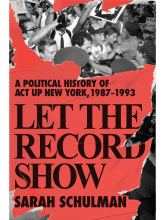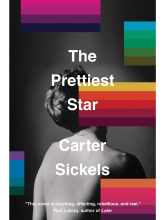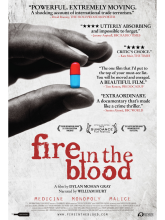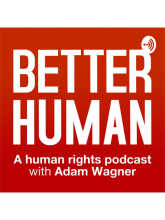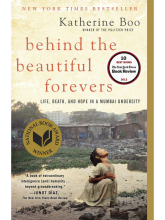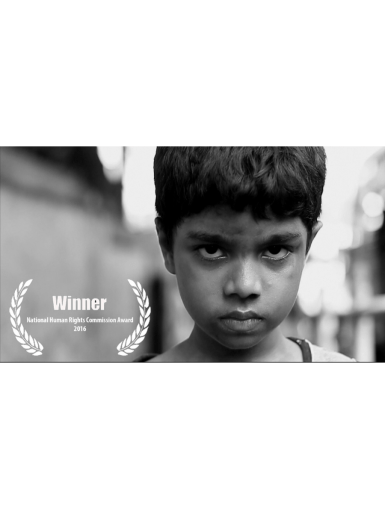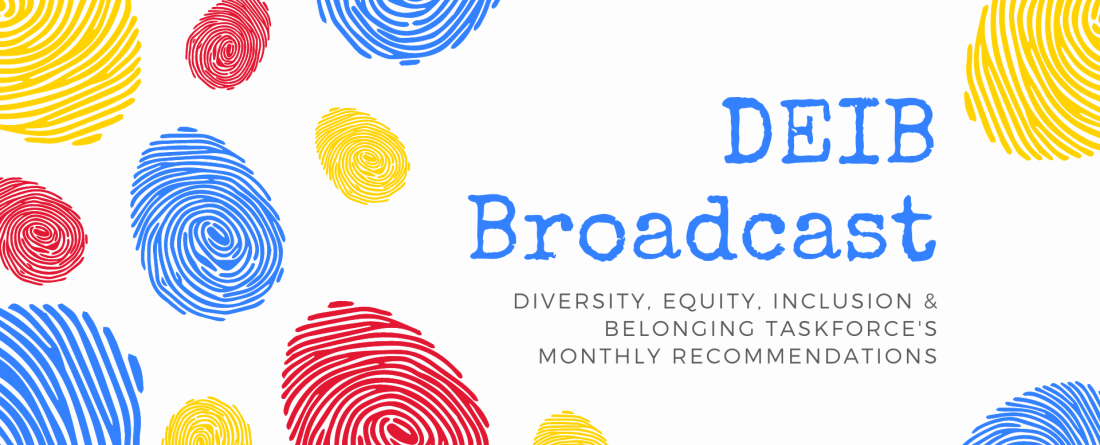
The School of Public Policy is committed to creating a thriving, inclusive environment at the School, where everyone takes an active role in incorporating diversity, inclusion and belonging into their work, classroom and interactions with students and colleagues. To that end, we’re excited to share our monthly recommendations for books, poetry, documentaries, podcasts, art and more for students to refer to on their personal and professional journeys to cultivating diversity, inclusion and belonging.
In the month of December we commemorate World Aids Day on December 1, as well as Human Rights Day on December 10. To that end, here are a few recommendations from SPP staff, faculty, and members of the Diversity, Inclusion and Belonging Taskforce for you to engage with this month.
Let the Record Show (Book)
For an outstanding chronicle of the early years of AIDS activism, look no further than Sarah Schulman’s Let the Record Show: A Political History of ACT UP New York, 1987–1993, which is also an exemplary model for telling a more complete story of a political movement. In writing Let the Record Show, published earlier this year, Schulman has orchestrated a people’s history of ACT UP New York. Her voice and those of a chorus of activists cohere in the book, which draws both on her experience as a veteran of the political-action group and from lengthy interviews she conducted with nearly 200 other members. The result is an expansive portrait of the people, principles, and campaigns that made ACT UP the most formidable political organization to emerge from the AIDS crisis. - Dagmawi Woubshet, The Atlantic
The Prettiest Star (Book)
Few books are able to oscillate the fine line between now and then while also invoking a sense of urgency, a reminder to bear witness to the institutional negligence of the past and to actively resist when it resurfaces in the future... Carter Sickel’s The Prettiest Star is that mirror of accountability, a reflection of how a society has or has not changed after a shift in collective consciousness, specifically during the AIDS epidemic. It is a stark reminder of the plight of so many young gay men and sounds the alarm that the fight for healthcare equality is far from over. - Greg Mania, Electric Lit
Fire in the Blood (Documentary)
Taking viewers across the globe, Dylan Mohan Gray’s Fire in the Blood follows the small group of activists fighting the pharmaceutical companies blocking access to AIDS drugs in the global south. A story that continues to this day, the film offers a solemn reminder to continue fighting corporate interests that endanger the health of our global community. Watch it on Netflix. - Mitch Kampf, International Documentary Association
Better Human (Podcast)
Can human rights make our societies better? The Better Human podcast explores the most important human rights issues of the day through engaging and accessible interviews with high-profile guests and straightforward guides to key concepts and key events. Presented by leading human rights lawyer Adam Wagner. Listen on Apple Podcasts or Spotify.
70 Years of Human Rights (Cartoon Collection)
Together with the United Nations Human Rights Office (OHCHR) and the government of the Kingdom of the Netherlands, Cartoon Movement launched the 70 Years of Human Rights collection, creating cartoons about the importance of the UDHR. Out of over 500 cartoons sent in from all over the world, 30 winning cartoons were selected; one for each article of the UDHR.
Behind the Beautiful Forevers (Book)
“Behind the Beautiful Forevers” is, above all, a moral inquiry in the great tradition of Oscar Lewis and Michael Harrington. As Boo explains in an author’s note, the spectacle of Mumbai’s “profound and juxtaposed inequality” provoked a line of questioning: “What is the infrastructure of opportunity in this society? Whose capabilities are given wing by the market and a government’s economic and social policy? Whose capabilities are squandered? . . . Why don’t more of our unequal societies implode?” Her eye is as shrewdly trained on the essential facts of politics and commerce as on the intimate, the familial and, indeed, the monstrously absurd. - Pankaj Mishra, The New York Times
Black & White (Short Film)
View the short film Black & White on human rights from India by Anuj Ramachandran, awarded the 2016 National Human Rights Commission Award.

